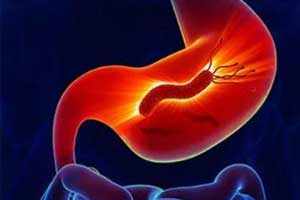- Home
- Editorial
- News
- Practice Guidelines
- Anesthesiology Guidelines
- Cancer Guidelines
- Cardiac Sciences Guidelines
- Critical Care Guidelines
- Dentistry Guidelines
- Dermatology Guidelines
- Diabetes and Endo Guidelines
- Diagnostics Guidelines
- ENT Guidelines
- Featured Practice Guidelines
- Gastroenterology Guidelines
- Geriatrics Guidelines
- Medicine Guidelines
- Nephrology Guidelines
- Neurosciences Guidelines
- Obs and Gynae Guidelines
- Ophthalmology Guidelines
- Orthopaedics Guidelines
- Paediatrics Guidelines
- Psychiatry Guidelines
- Pulmonology Guidelines
- Radiology Guidelines
- Surgery Guidelines
- Urology Guidelines
Vitamin D may improve success rate of H pylori eradication, finds recent study

China: Vitamin D might protect people from Helicobacter pylori infection, a recent study published in the Helicobacter journal. Moreover, vitamin D can also improve the success rate of H pylori eradication and individuals with vitamin D deficiency had a lower success rate of H pylori eradication.
According to the meta-analysis, the levels of vitamin D levels in H pylori‐positive patients were found to be lower than H pylori-negative patients.
H. pylori, a gram-negative and spiral-shaped bacterium that dwells on the gastric epithelium, is known to be associated with gastrointestinal diseases such as gastric ulcer, stomach cancer, and gastritis. However, lately, it has been shown to be associated with non-gastrointestinal diseases including autoimmune thyroid diseases, pre-eclampsia, and prostatitis. H.pylori infection has become a public health issue which has attracted the attention of many countries
- It was demonstrated that the average 25(OH)D level in H pylori‐positive patients was lower than H pylori‐negative (SMD = −0.53 ng/mL).
- For H pylori eradication individuals, the result showed that an average 25(OH)D level in H pylori successful eradication individuals was higher than unsuccessful (SMD = 1.31 ng/mL).
- Individuals with vitamin D deficiency had lower H pylori eradicate rate (OR = 0.09).
- Sensitivity analysis showed that the meta‐analysis results were stable and reliable.
Read Also: Three drug Combo receives FDA approval for H. pylori infection
"In the future, more prospective studies are needed to validate the results of this study," concluded the authors.
The article, "Effect of vitamin D on Helicobacter pylori infection and eradication: A meta‐analysis" is published in the journal Helicobacter.
DOI: https://doi.org/10.1111/hel.12655
Journal Information: Helicobacter

Disclaimer: This site is primarily intended for healthcare professionals. Any content/information on this website does not replace the advice of medical and/or health professionals and should not be construed as medical/diagnostic advice/endorsement or prescription. Use of this site is subject to our terms of use, privacy policy, advertisement policy. © 2020 Minerva Medical Treatment Pvt Ltd